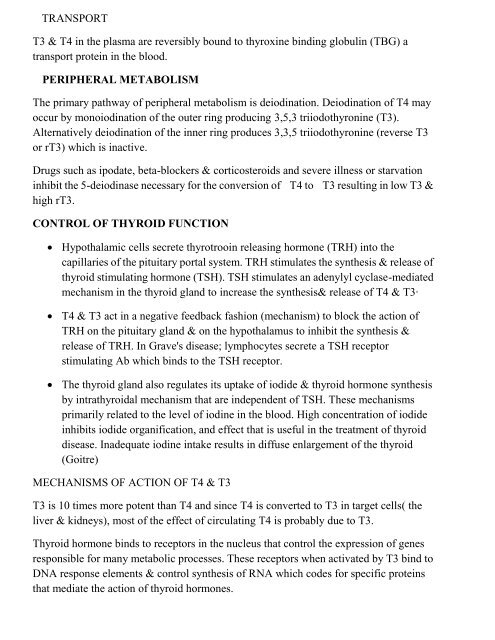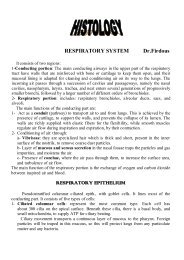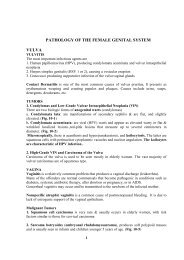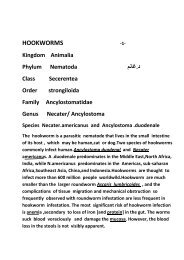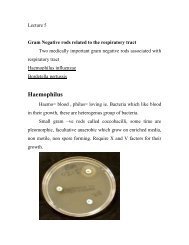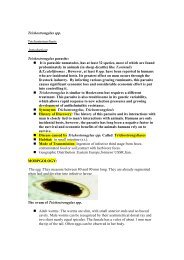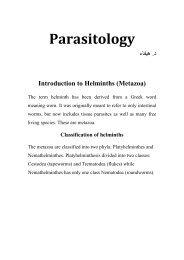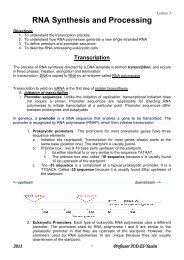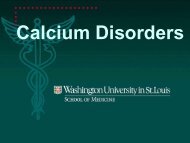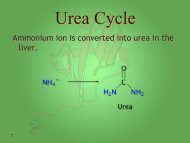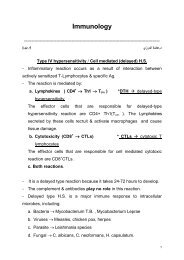THYROID HORMONEs& ANTITHYROID DRUGS
THYROID HORMONEs& ANTITHYROID DRUGS
THYROID HORMONEs& ANTITHYROID DRUGS
Create successful ePaper yourself
Turn your PDF publications into a flip-book with our unique Google optimized e-Paper software.
TRANSPORTT3 & T4 in the plasma are reversibly bound to thyroxine binding globulin (TBG) atransport protein in the blood.PERIPHERAL METABOLISMThe primary pathway of peripheral metabolism is deiodination. Deiodination of T4 mayoccur by monoiodination of the outer ring producing 3,5,3 triiodothyronine (T3).Alternatively deiodination of the inner ring produces 3,3,5 triiodothyronine (reverse T3or rT3) which is inactive.Drugs such as ipodate, beta-blockers & corticosteroids and severe illness or starvationinhibit the 5-deiodinase necessary for the conversion of T4 to T3 resulting in low T3 &high rT3.CONTROL OF <strong>THYROID</strong> FUNCTION Hypothalamic cells secrete thyrotrooin releasing hormone (TRH) into thecapillaries of the pituitary portal system. TRH stimulates the synthesis & release ofthyroid stimulating hormone (TSH). TSH stimulates an adenylyl cyclase-mediatedmechanism in the thyroid gland to increase the synthesis& release of T4 & T3· T4 & T3 act in a negative feedback fashion (mechanism) to block the action ofTRH on the pituitary gland & on the hypothalamus to inhibit the synthesis &release of TRH. In Grave's disease; lymphocytes secrete a TSH receptorstimulating Ab which binds to the TSH receptor. The thyroid gland also regulates its uptake of iodide & thyroid hormone synthesisby intrathyroidal mechanism that are independent of TSH. These mechanismsprimarily related to the level of iodine in the blood. High concentration of iodideinhibits iodide organification, and effect that is useful in the treatment of thyroiddisease. Inadequate iodine intake results in diffuse enlargement of the thyroid(Goitre)MECHANISMS OF ACTION OF T4 & T3T3 is 10 times more potent than T4 and since T4 is converted to T3 in target cells( theliver & kidneys), most of the effect of circulating T4 is probably due to T3.Thyroid hormone binds to receptors in the nucleus that control the expression of genesresponsible for many metabolic processes. These receptors when activated by T3 bind toDNA response elements & control synthesis of RNA which codes for specific proteinsthat mediate the action of thyroid hormones.


